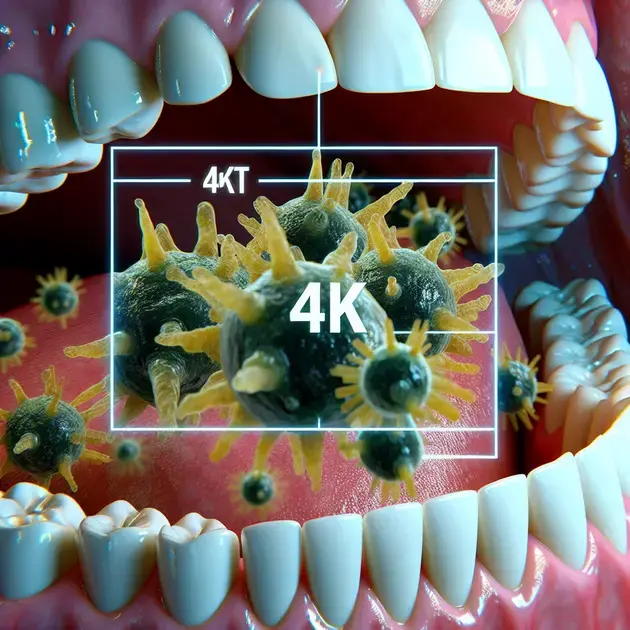Have you ever wondered about the importance of understanding plaque on teeth? In this comprehensive guide, we will delve into the intricate details of what plaque is, how it forms, and the impact it can have on oral health.
Recent studies have shown that the build-up of plaque not only contributes to cavities and gum disease but can also play a role in systemic health issues such as heart disease and diabetes. By gaining a better understanding of plaque, you can take proactive steps to maintain a healthy smile and overall well-being.

The Role of Plaque in Oral Health
Plaque plays a significant role in oral health as it is a sticky, colorless film of bacteria that constantly forms on our teeth. This buildup of plaque can lead to various dental issues such as cavities, gum disease, and bad breath. Understanding the importance of plaque in oral health is crucial to maintaining a healthy smile.
Steps to Control Plaque Buildup:
1. Brush your teeth at least twice a day with a fluoride toothpaste to remove plaque and prevent its buildup. Use a toothbrush with soft bristles to avoid damaging your enamel.
2. Floss daily to clean between your teeth and along the gumline, where your toothbrush may not reach effectively. This helps remove plaque and prevent gum disease.
3. Use an antimicrobial mouthwash to help reduce the amount of bacteria in your mouth and control plaque formation. Rinse for 30 seconds after brushing and flossing.
4. Visit your dentist regularly for professional cleanings and check-ups. Your dentist can remove any hardened plaque (tartar) that cannot be removed with regular brushing and flossing.
5. Maintain a healthy diet low in sugary and starchy foods, as these can contribute to plaque formation. Drink plenty of water to help wash away food particles and bacteria.
Understanding Plaque Formation
Plaque formation begins with the colonization of bacteria in the mouth, which combine with saliva and food particles to create a sticky film on the teeth. If not removed through proper oral hygiene practices, this plaque can harden into tartar, leading to more serious oral health issues.
Recommended App for Monitoring Plaque Formation:
An excellent app for tracking plaque formation is “PlaqueCheck,” available for download on both Android and iOS devices. This app allows users to log their brushing and flossing habits, receive reminders for oral hygiene routines, and provides personalized tips for preventing plaque buildup.
By using “PlaqueCheck” regularly, you can stay informed about your oral health and take proactive steps to control plaque formation before it becomes a more significant problem.
Impacts of Plaque on Overall Health
Plaque not only affects oral health but can also have significant impacts on overall health. The bacteria present in plaque can enter the bloodstream through inflamed gums, potentially leading to systemic issues such as cardiovascular disease, diabetes, and pneumonia.
Online Resources for Understanding the Link Between Plaque and Overall Health:
For a detailed overview of how plaque can impact overall health, visit the website “HealthLink Dental Clinic.” This online resource provides in-depth articles and research studies on the connection between oral health, plaque formation, and its effects on the body.
By educating yourself on the relationship between plaque and overall health, you can make informed decisions about your oral hygiene habits and take steps to protect not only your smile but also your wellbeing.

Causes of Plaque Buildup
Plaque buildup, also known as dental plaque, is a sticky, colorless film of bacteria that constantly forms on our teeth. It is a major contributor to various dental issues, including cavities and gum disease. Several factors can contribute to the formation of plaque in the mouth. Poor oral hygiene is perhaps the most significant cause of plaque buildup. When we neglect to brush and floss regularly, food particles and bacteria accumulate on the teeth, leading to plaque formation.
Consumption of sugary and starchy foods also contributes to plaque buildup. Bacteria in the mouth feed on these foods and produce acids that attack tooth enamel, leading to the formation of plaque. Additionally, certain lifestyle habits, such as smoking and excessive alcohol consumption, can also increase the risk of plaque buildup. These habits can weaken the immune system and create an environment conducive to bacterial growth.
Furthermore, genetics play a role in plaque formation. Some individuals may be more predisposed to plaque buildup due to genetic factors that affect saliva production or the composition of their oral microbiome. Medical conditions such as diabetes and autoimmune disorders can also impact oral health and contribute to the development of plaque.
To prevent plaque buildup, it is crucial to maintain good oral hygiene practices, such as brushing your teeth twice a day, flossing daily, and visiting your dentist regularly for professional cleanings. Avoiding sugary and starchy foods, quitting smoking, and moderating alcohol consumption can also help reduce the risk of plaque formation.
In conclusion, understanding the causes of plaque buildup is essential for maintaining optimal oral health. By addressing these factors and adopting good oral hygiene habits, you can effectively prevent and manage plaque formation in your mouth.
Effective Plaque Removal Techniques
Plaque removal is essential for preventing dental issues and maintaining a healthy smile. While regular brushing and flossing are the cornerstone of plaque removal, there are additional techniques that can help improve your oral hygiene routine. One effective technique is the use of antimicrobial mouthwash. Mouthwash can help kill bacteria in the mouth and reduce plaque buildup.
Another helpful technique is the use of interdental brushes or water flossers to clean between teeth where traditional brushing and flossing may not reach. These tools can help dislodge plaque and food particles from hard-to-reach areas, promoting better oral hygiene. Additionally, incorporating tongue scraping into your daily routine can help remove bacteria from the tongue, further reducing the risk of plaque formation.
Professional dental cleanings are also crucial for effective plaque removal. During a dental cleaning, a dental hygienist uses specialized tools to remove plaque and tartar buildup from your teeth, significantly reducing the risk of dental issues. Dentists may also recommend treatments such as dental sealants or fluoride applications to further protect your teeth from plaque buildup.
Practicing good dietary habits, such as reducing sugar intake and consuming foods rich in calcium and vitamin C, can also support plaque removal. These nutrients help strengthen tooth enamel and support overall oral health, making it easier to prevent plaque buildup. Lastly, staying hydrated by drinking plenty of water throughout the day can help flush out bacteria and food particles, reducing the likelihood of plaque formation.
In summary, incorporating a combination of techniques, including proper oral hygiene practices, professional cleanings, healthy dietary choices, and adequate hydration, can effectively remove plaque and support a healthy mouth.
Preventing Future Plaque Formation
While removing existing plaque is essential, preventing future plaque formation is equally important for maintaining optimal oral health. One key strategy for preventing plaque buildup is to establish a consistent oral hygiene routine. Brushing your teeth twice a day, flossing daily, and using antimicrobial mouthwash can help remove plaque and prevent its accumulation.
Regular dental check-ups are also vital for preventing future plaque formation. During these visits, your dentist can assess the health of your teeth and gums, remove any plaque or tartar buildup, and provide personalized recommendations for improving your oral hygiene routine. Dentists may also recommend treatments such as dental sealants or fluoride applications to protect your teeth from plaque.
Another effective way to prevent future plaque formation is to incorporate dental-friendly foods into your diet. Foods rich in fiber, such as fruits and vegetables, can help stimulate saliva production and naturally clean teeth. Cheese and yogurt are also beneficial for oral health as they contain calcium and proteins that strengthen tooth enamel and reduce plaque buildup.
Avoiding tobacco products and excessive alcohol consumption is crucial for preventing plaque formation and maintaining oral health. Smoking and alcohol can weaken the immune system, hinder saliva production, and promote bacterial growth in the mouth, increasing the risk of plaque buildup and other dental issues.
Lastly, maintaining overall health and wellness can contribute to a healthy mouth and prevent future plaque formation. Getting an adequate amount of sleep, managing stress, and staying active can support your immune system and promote good oral hygiene practices. By combining these strategies, you can effectively prevent plaque buildup and enjoy a healthier smile.
Conclusion
Understanding the causes of plaque buildup is crucial for maintaining optimal oral health. Factors such as poor oral hygiene, consumption of sugary foods, lifestyle habits like smoking, genetic predispositions, and certain medical conditions can all contribute to the formation of plaque. By addressing these factors through good oral hygiene practices, such as regular brushing and flossing, avoiding certain foods, and making lifestyle changes, individuals can effectively prevent and manage plaque formation in their mouths.
Effective plaque removal techniques, such as using antimicrobial mouthwash, interdental brushes, and professional dental cleanings, play a vital role in maintaining a healthy smile. Incorporating these techniques into an oral hygiene routine, along with proper dietary habits and staying hydrated, can help remove plaque effectively and support overall oral health.
Preventing future plaque formation involves establishing a consistent oral hygiene routine, attending regular dental check-ups, and incorporating dental-friendly foods into the diet. Avoiding tobacco and excessive alcohol consumption, maintaining overall health and wellness through adequate sleep, stress management, and physical activity are also essential in preventing plaque buildup. By combining these strategies, individuals can successfully prevent plaque formation and enjoy a healthier, happier smile.